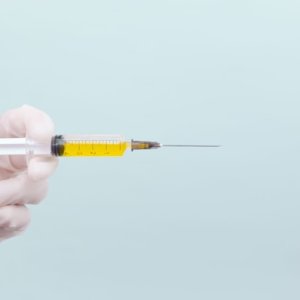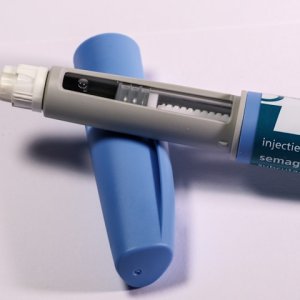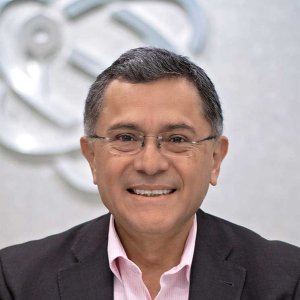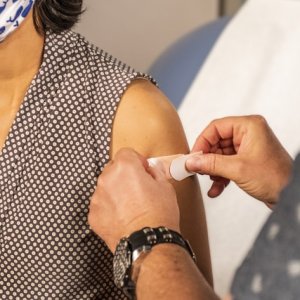Dialogue is Essential to Ensure Quality Treatments: Chiesi

STORY INLINE POST
Q: How was your product performance in the Mexican market impacted by the pandemic?
A: Besides difficulties in terms of logistics, planning and acquiring products that we import from Italy, we performed successfully in 2020, achieving a record 36 percent growth against 2019. This is not what we expected in March or April. Our performance has been strong across our product portfolio for both the private and public sectors.
Q: How have changes to the public medication acquisition scheme impacted Chiesi?
A: There are a few points to highlight. First, there was an enormous delay in product acquisition. Normally, government tenders take place around March and April. Last year, this was delayed until August-September. The result is that the market suffered a shortage of products. Some patients could not get treatments for their condition. The second issue is related to the collection of due payments. Unfortunately, we are still awaiting payment from the government for 2H19 and the entirety of 2020. This is a serious problem. It is okay to wait for a while and payment terms may be negotiated but waiting a whole year or even a year and a half to get your money is absolutely unacceptable.
Q: To what extent is this payment delay a result of the pandemic?
A: I do not think the pandemic had a great impact on this because we are also talking about 2019. Certainly, the pandemic may have added a layer of complexity but it cannot justify in any case the fact that someone can buy products without paying for them. Every company is dealing with the challenge of having to maintain its workforce and pay them in full. If you do not have money, it is almost impossible to sustain that.
Q: What is your view on the government’s intention to acquire medications through UNOPS?
A: UNOPS is an additional change. We have seen changes to the tender process every year. Personally, I think change is good. It forces people to look for new business models that are sometimes more efficient. UNOPS has a globally recognized reputation in terms of acquisition of pharmaceutical products. The only thing that I am wondering about is the planning. Today, we are already seeing a delay with the tender processes. Patented products were discussed last December. Last week, they were supposed to discuss single origin and generic medications. This is now going to be delayed until the end of this month. However, we are already in 2021. There will be availability issues. The time to deliver the products will end up being around May, optimistically speaking. This is five months into the year. We do expect some trouble in 2021.
Q: You mention the need to open discussion channels. Which channels do you suggest?
A: There are many channels. However, communication with key stakeholders at the government level is key. The only thing we can do is to work with industry associations. We are part of AMIIF, one of the most important associations in the industry. Through their president or board of directors, we can build dialogue with public institutions. That remains difficult, however. It is important to say that the responsibility lies with both sides. We can all do better. We need to find a way to plan for at least the next 12 months. The delivery of pharmaceutical products is not an easy job. Knowing which products will be required in Mexico, at what prices and in what timeline, would help a great deal. COFEPRIS is in charge of the release of products in the Mexican market but it is not the fastest regulating commission in the world.
Ultimately, issues can only be solved through constant dialogue. Doors cannot be closed, like we have seen with the government over the last year. COFEPRIS, the Ministry of Health and the Ministry of Finance need to reopen their doors to ensure the payment issue is resolved. If dialogue is not restarted, the issues will remain and probably worsen over the next couple of years. My wish is that we take a concrete look at what the country needs and take a holistic approach to address these needs.
Q: You have previously expressed concerns about the low-quality generic products flooding the market. How has this issue evolved?
A: We know now that tenders are officially open to any international player that would like to sell products in Mexico, even if they are not properly registered in the country. This affects the basic security and respect for the patents and rights of commercialization in the country. The issue remains a concrete risk, which is going to manifest in short order. The whole industry is concerned about this. We invested a great deal of money in Mexico to develop commercial and industrial operations. The country should protect this investment. Otherwise, it does not make any sense to invest money in the country. The international products that are not yet registered in Mexico should be properly analyzed by COFEPRIS to review whether they meet national requirements. Otherwise, they are jeopardizing the national sector.
Q: Do you think the government’s product decisions are too focused on price?
A: Yes, this is the wrong approach. If you want an innovative product, you need to pay for the innovation. It is much better to take into account the total cost of treatment. A costlier product will have a lower total cost of treatment, if it treats the patient better. A cheaper product means you will need to spend on longer hospitalization and additional products. The total cost of treatment ends up being higher. This is why the price on the box is misleading.
Q: In which product areas do you expect the most growth?
A: COPD and respiratory disease treatments will see increased demand. In 2018, we introduced the first triple treatment therapy for COPD in Mexico. I assume that the COPD segment, and later also asthma, will contribute to the growth of the company because people need treatments for respiratory diseases. We found that many people have had respiratory issues that were wrongly treated. There is still a great deal of potential in this area.
The key is to create awareness. We have seen awareness rising, not just because of our own campaigns but also because of other organizations. Providing people with free respiratory tests allowed them to realize they may have a problem and that they need to see a doctor. Doctors also need to truly understand the condition of the patient and what is needed to treat it efficiently. Moreover, we need to create access to treatments. This means making the product available in the private and public sectors. We need to work together to overcome the obstacles.
Chiesi Group is an Italian pharmaceutical manufacturer with 29 global subsidiaries and direct distribution in 60 countries. Its therapeutic treatments are focused on respiratory, neonatology and rare diseases.








 By Jan Hogewoning | Journalist and Industry Analyst -
Wed, 01/27/2021 - 21:07
By Jan Hogewoning | Journalist and Industry Analyst -
Wed, 01/27/2021 - 21:07
















